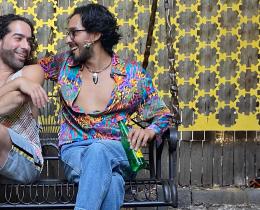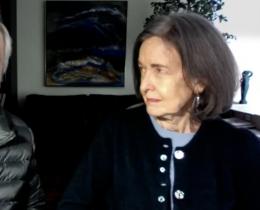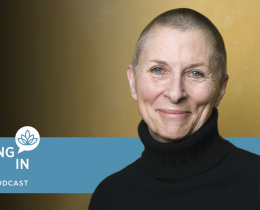Omega: For the first time in recorded history, more than 50 percent of the U.S. population is now categorized as single. How do you think that affects the quest for love?
Katherine: We expect more from our unions now than ever before and certainly more than our grandmothers ever did. When our relationships are not working, we leave them more easily. Sometimes that 50 percent figure makes us feel like there's not much hope for us in love.
The truth is, however, that throughout recorded human history whenever women have risen to equal power with men, the divorce rates will rise to about what they are right now. When women feel powerful, we don’t tend to dim down our hopes for partnership; instead we tend to be optimistic that we have the power to create an even more fulfilling experience of love and partnership—one that supports us to realize the higher potentials we hold for happiness, health, creativity, and contribution.
We’re also living in an age where we have a tremendous amount of choice available to us, which is really unprecedented in the human landscape. We feel confident enough to leave our relationships when they’re not working for us, which is contributing to the fact that there are more single adults in America than there are married adults.
Much of my work is about closing the gap between our ideals and our lived experience. Right now, there’s a little bit of an imbalance between how much our expectations have evolved and how much we ourselves have evolved. Many of us are not yet who we would need to be to attract and then sustain the vibrant, co-creative, and deeply satisfying relationships we desire. We are still carrying around baggage from the past, we have blocks to love that create push-pull dynamics, and we have psychological barriers that are preventing us from realizing the potentials our relationships hold for true happiness. My work is about identifying and dissolving these internal obstacles to love so that we might be more equipped to love and be loved in the ways we yearn for.
Omega: You refer to yourself as a “Love-olutionary.” What does that mean to you?
Katherine: Many of us are called right now to realize the higher potentials of our relationships, and that requires that we lean into the ways that we would need to develop ourselves and consciously grow our capacity to love and be loved. We are called to a deeply fulfilling, soulful, mutually empowering partnership and it’s clear to me that we will need to become our fullest expression of ourselves to be capable of creating those partnerships.
If you’ve heard the song, “What the World Needs Now Is Love,” I’d like to upgrade it to “What the World Needs Now Is Love in Its Most Developed, Most Sophisticated Form,” so that we actually have the capacity to be living in relationship with each other in a way that we’re feeding power to each other and supporting one another to realize our greatest potentials.
Omega: For people looking for love, you wrote the national best seller Calling in “the One.” What is one of the most crucial steps to finding lasting love?
Katherine: Most single people would say that they'd love to be in a happy, healthy, and soulful partnership; I’m not saying all, but most. In the Calling in "The One" work, we take stock of all the subtle, unconscious ways that we’ve been getting in our own way. All of the ways we are working against ourselves and showing up inconsistently with what we say we want. For example, wanting love but going after those who are incapable of giving it to us. Or believing we are open and ready for a relationship and then staying home and isolating night after night.
A lot of us are trying to figure out why we don’t have the love that we so deeply want. And to try to understand why we're single, we'll look at all of the external obstacles to love, such as “all the good ones are taken,” “men don’t like powerful women,” “I’m too fat,” “I’m too tall,” or “I’m too broke.” I’m not saying there’s no merit to looking at those external things, but the majority of our obstacles to receiving greater love into our lives are really internal.
One of the ways that we’re conflicted within ourselves has to do with old resentments we’re carrying, particularly toward a former love who hurt us. It can be hard to give up a resentment, because most likely you were treated poorly. Yet, I like to say even if it’s 97 percent the other person’s fault, you want to be really interested in your three percent because until you figure out how you gave your power away in that relationship, you’re liable to do it again. You won't really be able to trust yourself moving forward in love until you course correct how you show up in relationships.
For example, a lot of times we set ourselves up to be hurt in a covert way—it’s the absence of speaking up, it’s the turning away from a red flag, it’s the dismissing of our own deeper knowing, or the chronic accommodation of someone else’s feelings and needs while disappearing your own.
All of these ways of being have a consequence to our own lives. We have to make an amends to ourselves by promising ourselves to show up differently and more powerfully from now on, so that we can trust ourselves to love again.
We have a tremendous amount of power to evolve our capacity to love and be loved. For those who have struggled in the area of love and relationships, Calling in “The One” will put you back into your power so that you can feel confident that the love you are yearning for is yours to create.



